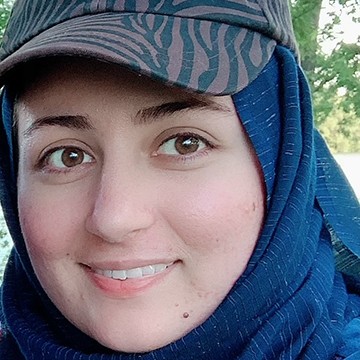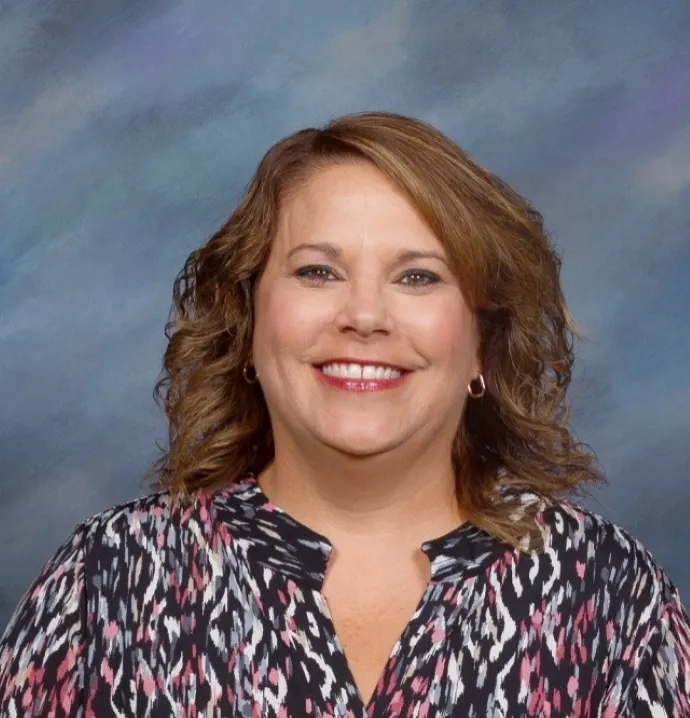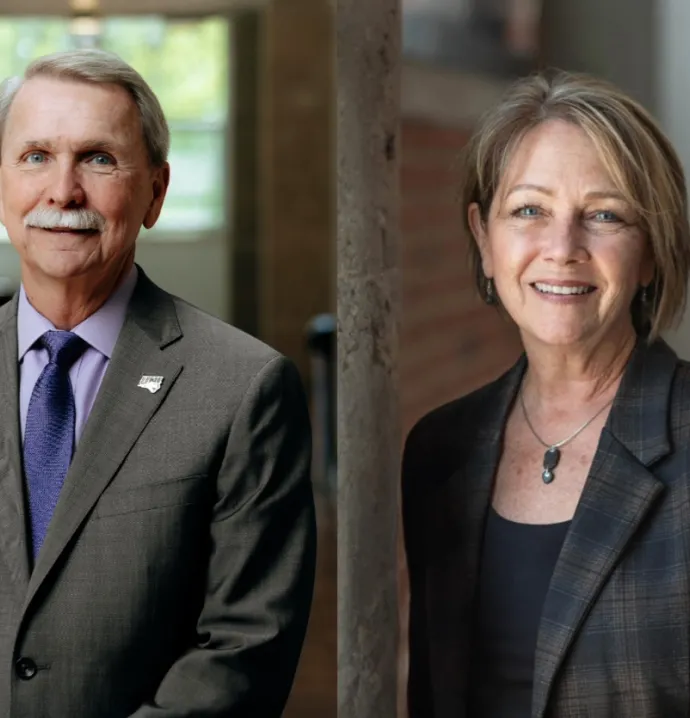UNI Fulbright scholar empowering Afghan women
UNI Fulbright scholar empowering Afghan women
UNI Fulbright Scholar Hasina Jalal knows only too well the high stakes for women who work for equality, liberty and democracy in her native Afghanistan.
Her mother and role model, Massouda Jalal, a psychiatrist and pediatrician, ran two strong, independent and self-financed campaigns as the only woman candidate for president of the war-torn country in 2002 and 2004. She defied the Taliban, warlords and corrupt politicians to promote anti-poverty and human and women’s rights policies. 
“Seeing the kind of amazing work she has done, she was my initial mentor,” said Hasina Jalal, who is set to complete her master’s degree in women’s and gender studies at UNI in May 2021. “I wanted to do the kind of work she has done. That became my passion.”
Jalal, who plans to earn a doctorate in public policy in the United States, is already well on her way to building her own legacy of empowering Afghan women. She’s founded an activist newspaper (a bold action in a country where women’s rights supporters have been murdered), spoken at UN conferences, co-founded non-profit organizations and currently serves as co-founder and director of the South Asian Women’s Coalition for Cooperation.
Her awards, activism and achievements fill three single-spaced resume pages. Last month, she was named one of the “100 Most Influential Women in Afghanistan” and previously has won a Global Women Leadership award along with honors from the World Human Rights Congress and Women’s Economic Forum.
Jalal credits her professors at the University of Northern Iowa, where she started her second master’s degree in Fall 2019, with providing important support and guidance during her time in America.
That’s been crucial as Jalal acclimated to Iowa from the teeming cities of Kabul and New Delhi, India, the latter where she earned her bachelor of arts with honors in economics and political science in May 2016, and the former where she earned her MBA in May 2019.
And with the move, Jalal also had to deal with being away from her family during the coronavirus pandemic.
“I have built a very, very deep professional relationship with my professors, and I’ve learned so much from them,” she said. “It just motivates me whenever I interact with them that I am in the right place, and that I'm doing the right thing because of the knowledge that they have and the kindness and professionalism that they show.”
Wendy Hoofnagle, associate professor and director of UNI’s Women’s and Gender Studies Program, said she is humbled by Jalal’s and other young international women students’ strength, determination and passion for knowledge. That’s especially true for young women from countries where women still struggle for their voices to be heard, she said. “Jalal’s story is inspirational, heartbreaking and, sadly, not unique,” Hoofnagle said.
UNI faculty, staff and 43-year-old Women’s and Gender Studies Program work hard to ensure international students such as Jalal benefit from the studies here — and perhaps expand local students’ worldview.
At the same time, Hoofnagle said she has “no doubt that Jalal will emerge a leader in whatever future she creates. “She’s so driven,” Hoofnagle said of Jalal. “She is undaunted. And she is also extremely loving and kind.”
Shahina Amin, the Lawrence Jepson professor of international economics, supervised Jalal’s work when Jalal worked as her research assistant. Like other professors who worked with her, Amin said she found herself learning from Jalal, too.
“Having someone firsthand describing the war-torn country and how women fight for their rights – how they are struggling with that, it enriches my learning and it enriches the learning of the campus,” Amin said.
Jalal has leveraged her smarts, compassion and work ethic every step of the way. She earned merit scholarships throughout her academic career. And she has worked both professionally and helped start collaborative programs to empower women at each step in her own impressive career.
She has followed her mother’s footsteps in her humanitarian endeavors, too.
Massouda Jalal had taught at Kabul Medical University, traveled the country as a doctor of the Red Cross and ran the United Nations World Food Programme during the Taliban regime. After the 2004 election, she served for nearly two years as minister of women’s affairs, where she criticized the government — as she continues to do — for failing to advance women’s rights and legal protections.
In 2006, Massouda Jalal started the Jalal Foundation — a nonprofit that connects donors to other nonprofits that provide women and girls’ empowerment efforts.
Hasina Jalal is motivated in part by her mother’s lost potential.
“She was singled out for being different. She was independent and didn’t belong to any ethnic or religious party,” she said of her mother. “That impacted me personally, a lot.”
Jalal gained another lifelong lesson from her mother’s political career: She got first-hand experience in running a household, since at age 9, she took care of her younger sister and brother while her mother and father, the latter who has taught law and political science for more than 30 years at Kabul University, traveled and campaigned.
The country’s deteriorating economy pressured the Jalal family’s finances, so Hasina Jalal decided to pursue economics and business as a career with the goal of becoming financially independent. She started her bachelor’s degree in economics at Kabul University and earned her degree in economics and political science from JMI University in India on a coveted scholarship.
During her bachelor’s studies, Jalal co-founded an activist tabloid — Freedom Message newspaper, a bold move in a country whose political upheavals have thwarted the media. At the newspaper, Jalal wrote the untold stories of women and girls who faced violence and who were marginalized and oppressed. The newspaper’s mission is to expose women’s rights abuses and promote freedom of expression, tolerance and understanding of democratic principles and human rights laws.
That’s been her mission all along, as evidenced by other initiatives. The Asian Rural Women’s Coalitions recognized her efforts with the “Honoring 100 Asian women” award in 2012. In 2014, the public elected Hasina Jalal to receive the N-Peace Award from the United Nations Development Programme’s Asia Pacific Office and the UN Secretary General's Special Advisor on the University for Peace to recognize her fight for peace, democracy, human rights and gender equality in Afghanistan.
In 2016, she won the Global Women Leadership award, and in 2017, the World Human Rights Congress awarded her the World Super Achiever Award.
Yet she’s fully aware of the many challenges still to be overcome. She said she remembers the swelling pride she had, even as a child, in her country — and it continues to keep her motivated.
When an Afghan won a medal in the Olympics or a big competition, she said, “At first, I would cry out of happiness as if I had gotten that medal, you know. And then I would just be happy for the whole week and keep talking about it as a child. So when I grew up, that love of my people and my country was with me all the time. And it’s still with me, every day.”




